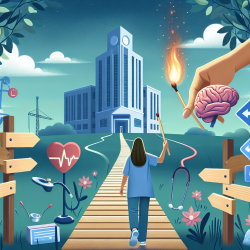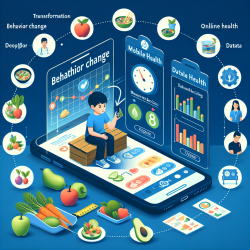Mental health professionals in schools play a pivotal role in shaping the emotional and psychological landscape of our educational environments. Yet, this essential work often comes with its own set of challenges, leading to feelings of burnout and exhaustion. If you're feeling the heat, it's not just you. In an industry where the well-being of others is your day-to-day, it's vital to have the right tools to sustain your passion and thrive in your role.
Burnout can manifest as emotional fatigue, a sense of reduced accomplishment, and even depersonalization, where connecting with others becomes a task rather than a meaningful interaction. The high demands, coupled with the intense nature of the job, can take a toll. But here's the silver lining: with the right strategies and resources, you can turn the tide on burnout and rediscover the fulfillment in your work.
Let's explore some actionable tools and steps that can help you rejuvenate your practice and maintain your mental health while serving in schools.
Embrace the Digital Revolution: Telepractice Jobs
The world of therapy is evolving, and telepractice jobs are at the forefront of this transformation. Offering therapy services online, companies like TinyEYE are breaking down the barriers of traditional in-person sessions and opening up a world of flexibility and convenience for both therapists and clients. Embracing telepractice not only diversifies your skillset but also provides a change of pace that can reinvigorate your professional life.
With telepractice, you can design a work schedule that aligns with your personal needs, reducing stress and preventing burnout. The virtual format can also introduce you to a broader range of clients and cases, keeping your day-to-day engaging and intellectually stimulating. Plus, the technology tools provided by platforms like TinyEYE can streamline administrative tasks, leaving you more time to focus on what you love—helping students thrive.
Build Your Toolkit: Creating Resources for Sustainable Practice
Having a well-stocked toolkit is essential for any mental health professional. This doesn't just mean therapeutic techniques, but also resources that support your practice's sustainability. Develop a library of self-care strategies, from mindfulness exercises to regular physical activity, that can serve as a buffer against stress. Additionally, creating a repository of therapy activities and materials can save you time and enhance your sessions, making your work feel less like a chore and more like a creative endeavor.
Moreover, investing in professional development can reignite your passion for your work. Whether it's attending workshops, webinars, or conferences, continuous learning can provide a fresh perspective and introduce you to new methods that can enrich your practice. Plus, it's an opportunity to connect with peers who understand your challenges and can offer support and camaraderie.
Lean on Community: The Power of Peer Support
No one understands the challenges of school-based mental health work like your fellow professionals. Building a network of peers can be a powerful tool in combating burnout. Whether it's through online forums, professional associations, or local meetups, connecting with others in your field can provide a sense of solidarity and a space to share experiences and coping strategies.
Peer supervision groups can also be a valuable resource, offering a platform to discuss cases, reflect on practice, and gain insights from colleagues. These groups can validate your experiences and provide a collective knowledge base that can enhance your approach to therapy. Remember, seeking support is not a sign of weakness but a proactive step towards maintaining your emotional well-being.
Set Boundaries: Protecting Your Time and Energy
One of the most crucial tools in your arsenal against burnout is the ability to set boundaries. As a mental health professional, you're likely naturally empathetic and inclined to go above and beyond for your students. However, without clear boundaries, this can lead to overextension and exhaustion.
Setting boundaries involves defining your work hours, learning to say no when necessary, and prioritizing your own needs alongside those of your clients. It also means recognizing when you need to step back and take a break. By protecting your time and energy, you ensure that you can continue to provide high-quality care without sacrificing your well-being.
Reflect and Reassess: Aligning Your Role with Your Values
Feeling burnt out can sometimes be a sign that your current role is not fully aligned with your values or long-term goals. Take time to reflect on what aspects of your job bring you the most satisfaction and which parts feel draining. Consider how you might be able to adjust your responsibilities or seek out new opportunities that better match your passions.
Telepractice jobs, for instance, can offer a different approach to delivering mental health services that might better align with your vision for your career. With the rise of online therapy services, there are more options than ever to find a role that suits your preferences and lifestyle.
Take the Next Step: Explore Opportunities with TinyEYE
If you're feeling the pull to explore new avenues in your career, consider the opportunities available through TinyEYE. As a leader in online therapy services, TinyEYE offers mental health professionals a chance to step into telepractice jobs that offer flexibility, diversity, and the support of a community dedicated to innovation in school therapy.
By taking the next step with TinyEYE, you can access a suite of tools designed to streamline your practice, connect with a global network of professionals, and continue to make a meaningful impact in the lives of students. Don't let burnout dictate your professional journey. With the right tools and a supportive community, you can rediscover the joy in your work and continue to make a difference in the world of school mental health.
Feeling ready to take action and prevent burnout? Reach out to TinyEYE today to learn more about how telepractice jobs can revitalize your career and help you maintain your mental health while serving the needs of students. It's time to take that next step and ensure your professional life is as rewarding as the important work you do every day.










